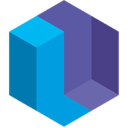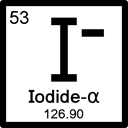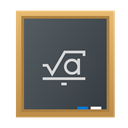Top Observable Notebooks Alternatives for Interactive Data Exploration
Observable Notebooks offers a powerful and interactive environment for data analysis, visualization, and exploration, making coding more intuitive and collaborative. However, depending on your specific needs, team setup, or preferred programming languages, you might be looking for an Observable Notebooks alternative. Whether you prioritize open-source solutions, specific language support, or offline capabilities, there are several excellent tools that offer similar, or even enhanced, functionalities for interactive computing.
Best Observable Notebooks Alternatives
To help you navigate the landscape of interactive notebook environments, we've compiled a list of top alternatives that cater to various requirements, from data science to general-purpose programming and collaborative work.

Jupyter
Jupyter is a widely recognized and robust open-source, interactive data science and scientific computing platform. It supports over 40 programming languages and is available across Free, Open Source, Mac, Windows, Linux, Web, and Cloudron platforms. Its key features include being browser-based, offering interactive visualization, literate programming, server-side capabilities, and multiple language support, making it a comprehensive Observable Notebooks alternative, especially for those needing extensive language flexibility.

IPython
IPython is an interactive shell for the Python programming language, offering enhanced introspection, additional shell syntax, syntax highlighting, and tab completion. As an open-source tool available on Free, Open Source, Mac, Windows, and Linux, IPython is a foundational component for many Python-based interactive computing environments, making it a solid choice if your primary focus is Python development and you're looking for an Observable Notebooks alternative tailored for that language.

Beaker
The Beaker Notebook is an open-source tool designed for research and data science, featuring an advanced UI that prioritizes data and scientific exploration. It is available for Free, Open Source, Mac, Windows, and Linux, and offers features like Business Intelligence, Data Mining, and Machine Learning capabilities. Beaker is a strong Observable Notebooks alternative for users who need dedicated tools for complex data analysis workflows.

Carbide
Carbide is a new programming environment that uses a notebook format with live coding features to facilitate development and debugging. It is a Free, Web-based platform, making it accessible from any browser. While its feature set is still evolving, Carbide offers a live-coding focused Observable Notebooks alternative for developers who prioritize immediate feedback and streamlined debugging.

Eve
Eve is a programming language and IDE that takes a unique document-oriented approach, making programs look like documents and focusing on the human programmer. It is Free and Open Source, available on Mac, Windows, and Linux. For those seeking an innovative and human-centric programming experience as an Observable Notebooks alternative, Eve presents a distinctive option.

Kajero
Kajero focuses on interactive JavaScript notebooks, enabling users to create good-looking, responsive, and interactive documents. It is a Free, Open Source, and self-hosted solution available on Mac, Windows, Linux, and Web platforms, with GitHub integration. Kajero is a compelling Observable Notebooks alternative for developers and educators primarily working with JavaScript and seeking to create interactive web content.

µCalc
µCalc (mucalc) is a multi-user math web app with real-time collaboration features. It parses math syntax in the browser and uses a Node.js backend for synchronization. This Free, Open Source, Web, and Self-Hosted tool supports LaTeX, multiple users, real-time collaboration, and unit conversion. µCalc serves as an excellent Observable Notebooks alternative for collaborative mathematical computations and shared document creation.

iodide
Iodide is a notebook programming environment specifically for the web, allowing users to combine JavaScript, Markdown, CSS, and external resources for effective communication. It is a Free, Open Source, Web, and Self-Hosted platform. Iodide is a strong Observable Notebooks alternative for web developers and content creators who want to build and share interactive web-based documents directly.

Cantor
Cantor acts as a front-end to various powerful mathematics and statistics packages, integrating them into the KDE Platform with a user-friendly, worksheet-based graphical interface. It is a Free Linux-based tool featuring syntax highlighting and worksheet functionality. For Linux users involved in scientific computing and statistics, Cantor offers a robust Observable Notebooks alternative, leveraging existing mathematical software.

Calculist
Calculist is an open-source, web-based thinking tool designed to facilitate effective problem-solving through its list management, notetaking, and task management features. It is Free, Open Source, Web, and Self-Hosted. While not a direct coding notebook, Calculist serves as a valuable Observable Notebooks alternative for users who prioritize structured thinking, planning, and knowledge organization alongside their data analysis tasks.
Each of these alternatives offers unique strengths, from broad language support to specialized features for data science, mathematics, or web development. We encourage you to explore them based on your project requirements, team collaboration needs, and preferred development environment to find the perfect fit for your interactive computing tasks.